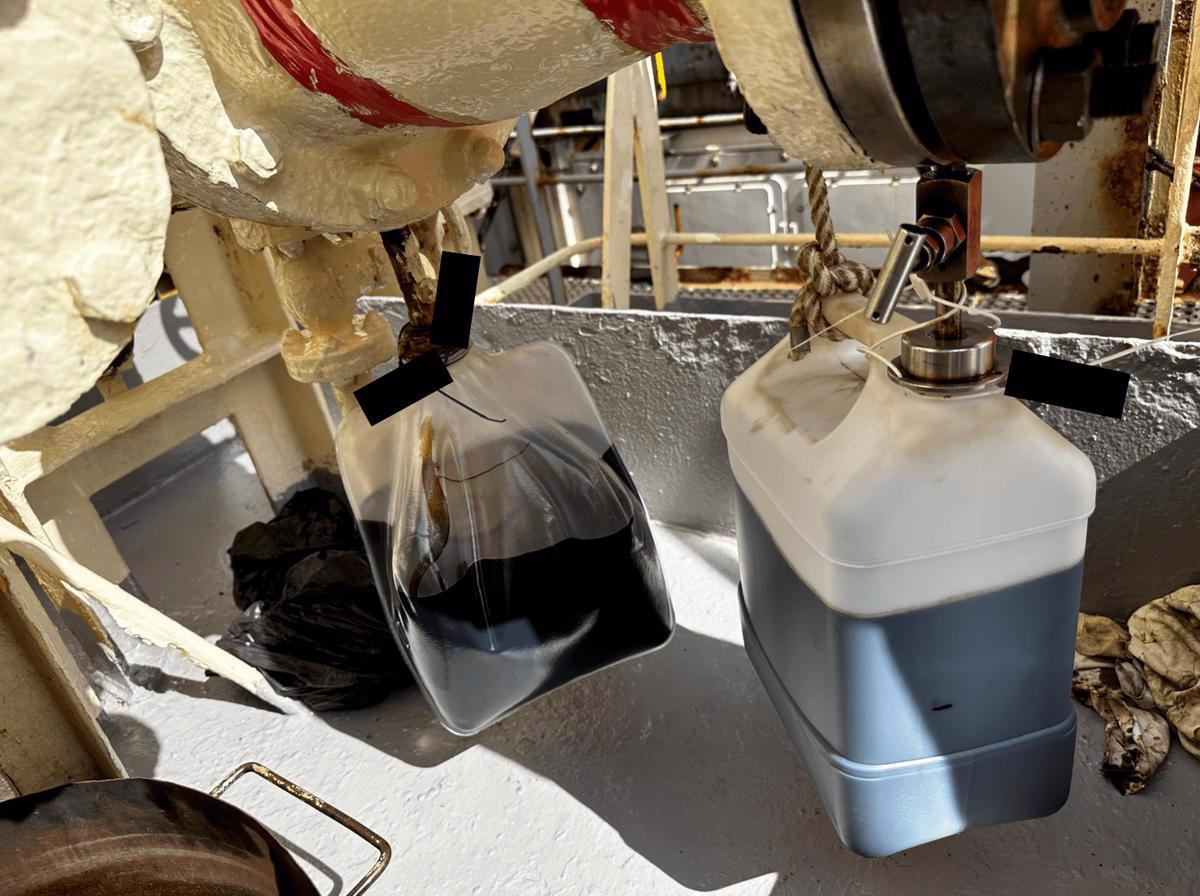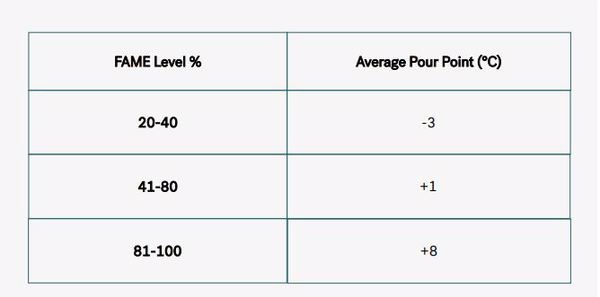Temperature-sensitive biofuels need Goldilocks zone – Integr8
Used cooking oil (UCO)-based biofuels tend to have higher pour points, Integr8 Fuels’ bunker quality and claims manager Chris Turner says.
 PHOTO: Biofuel sampling conducted by a surveyor during a biofuel bunkering pilot project. GCMD
PHOTO: Biofuel sampling conducted by a surveyor during a biofuel bunkering pilot project. GCMD
The pour points of biofuels blended with MGO are seen to increase corresponding to an increase in the blend percentage of fatty acid methyl esters (FAME), with levels between 6-12°C not uncommon for biofuel blends with more than 80% FAME content (B80+), a recent bunker quality trends report from Integr8 found.
This is “no doubt as a result of the feedstocks likely being used as cooking oils,” Turner says.
Not too cold
Pour point is defined as the lowest temperature at which oil is capable of flowing under gravity.
Turner argues that given the pour point levels noted for cooking oil methyl ester (UCOME)-based biodiesel, “it is highly likely that heating the fuel will be necessary to prevent operational difficulties onboard the vessel and will require storage tanks with heating coils.”
 PHOTO: Pour point of MGO-FAME blends. Integr8 Fuels
PHOTO: Pour point of MGO-FAME blends. Integr8 Fuels
Not too hot
However, too much heating can be a cause of concern as well. The presence of unsaturated fatty acids in biofuels makes them prone to oxidative degradation, which is when biofuel molecules fall apart in contact with the oxygen in the air. Higher temperatures and light can speed up this process.
And vegetable oils and animal fats used to produce biofuels contain a lot of these unsaturated fatty acids.
In fact, a study commissioned by German bulk carrier company Oldendorff Carriers raised concerns about the stability and degradation of biofuel blends over time. They were found to last shorter than conventional fuels when they were stored in bunker fuel tanks on vessels.
The study, which was conducted by the US-based Massachusetts Institute of Technology’s (MIT) Center for Bits and Atoms (CBA), noted microbial contamination (MCB) and oxidative degradation in biofuel samples used for the test over time. It recommended adding antioxidants and monitoring the biofuels regularly.
In June, another study on using biofuels onboard vessels conducted by the Mærsk Mc-Kinney Møller Center for Zero Carbon Shipping (MMMCZCS) also showed that unsaturated compounds in biofuels can make them susceptible to oxidative degradation.
Goldilocks zone
UCOME bunker blends will stop flowing properly in too cold weather, but in too hot weather they will oxidate and pose a different problem. While this can be “beneficial from a biodegradability perspective,” Turner notes, it is an “undesirable characteristic from a fuel-quality standpoint.”
That’s why we can call them “’goldilocks fuels’, where, just like the porridge in the children’s story, it mustn’t be too hot or too cold but stored ‘just right’,” he says.
By Tuhin Roy
Please get in touch with comments or additional info to news@engine.online






